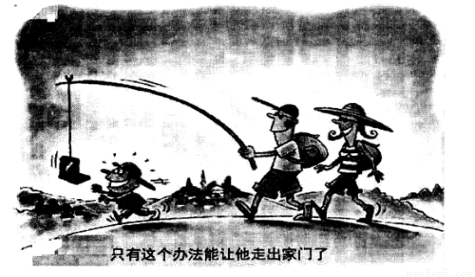题目内容
Mr. Smiths was busy writing a story, only ______ once in a while to smoke a cigarette.
A. to stopB. to have stopped C. being stopped D. stopping
D
【解析】
试题分析:句意:史密斯先生忙于写故事,只偶尔停下来抽一根烟。Stop和逻辑主语Mr. Smiths 是主谓关系,故用现在分词作伴随状语。故选D。
考点:考查现在分词作伴随状语。

练习册系列答案
相关题目

 -light (16%). Children in media-centric families spend at least three hours more each day watching TV or using computers, video games and tablet PCs don't make parenting easier.And 88 percent of parents say they are most likely to turn to toys or activities to keep their children occupied.Slightly fewer turn to books (79%) and TV(78%).
-light (16%). Children in media-centric families spend at least three hours more each day watching TV or using computers, video games and tablet PCs don't make parenting easier.And 88 percent of parents say they are most likely to turn to toys or activities to keep their children occupied.Slightly fewer turn to books (79%) and TV(78%). ok at how media affects children. That's a topic that the American Academy of Pediatrics has handled a number of times. The AAP says studies have found too much media use can lead to attention- problems, school difficulties, sleep and eating disorders and being fat. In addition, the Internet and cell phones can provide platforms for illegal and risky behaviors.¨By limiting screen time and offering educational media and non-electronic formats (格式)such as books, newspapers and board games, and watching television with their children, parents can help guide their children's media experience. Putting questionable content into context and teaching kids a700ut advertising contributes to their media literacy (素养) ," it says.
ok at how media affects children. That's a topic that the American Academy of Pediatrics has handled a number of times. The AAP says studies have found too much media use can lead to attention- problems, school difficulties, sleep and eating disorders and being fat. In addition, the Internet and cell phones can provide platforms for illegal and risky behaviors.¨By limiting screen time and offering educational media and non-electronic formats (格式)such as books, newspapers and board games, and watching television with their children, parents can help guide their children's media experience. Putting questionable content into context and teaching kids a700ut advertising contributes to their media literacy (素养) ," it says. ve play.
ve play.